Category Insight: Non-dairy Milks
August 9, 2018
It’s on the way to becoming a $3.3 billion market, and has seen 61% growth in just a few years. Non-dairy milks are the clear successor to cow (dairy) milk. Consumers often perceive these products as an answer to their health and wellness goals. But the space isn’t without challenges or considerations. Let’s take a look at the market, from new product introductions to regulatory controversy.
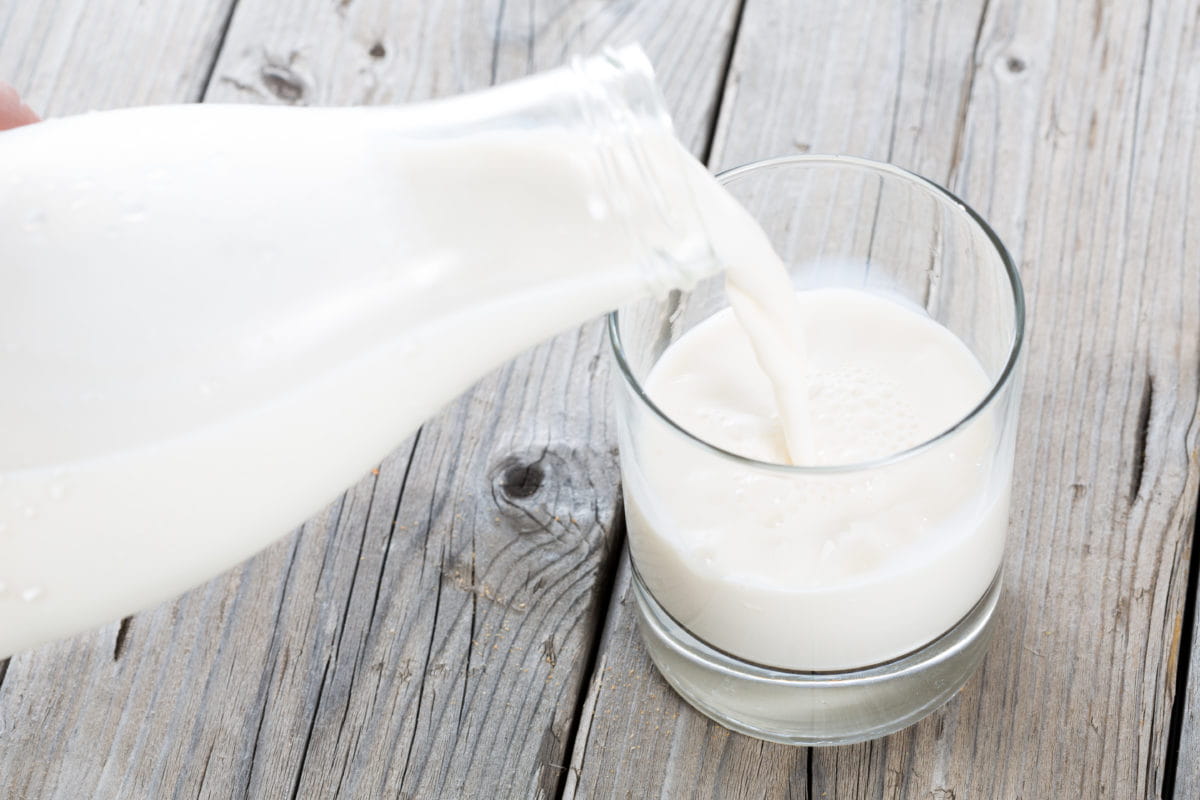
Click Here for the full report!
Cow milk (also called dairy milk) has been on the decline since 2012. Non-dairy milks, however grew 61% in the same time period.
Consumers are seeking these plant-based alternatives that they believe help them feel and look better to fulfill health and wellness goals. Perception of the products’ health benefits is growing, as consumers seek relief from intolerance, digestive issues and added sugars. And the market reflects it. Non-dairy milks climbed 10% per year since 2012, a trend that’s expected to continue through 2022 to become a $3.3 billion-dollar market.
As the dairy milk industry has leveled out, the non-dairy milk market is growing thanks to the consumer who’s gobbling up alternatives like almond milk faster than you can say mooove. Many industry insiders consider almond milk the “gateway non-dairy milk” to lesser known options, like hazelnut, pistachio and banana. Of note, rice milk has lost favor with consumers as it doesn’t match the nutritional qualities of dairy milk and has a considerable amount of sugar.
• Almond: Steadily leading the non-dairy milk category with 63.9% of the market share, almond milk has the potential to create bottles and bottles of opportunity incorporating unique flavors for thirsty consumers.
• Soy: With a 24% market share decline since 2015, once-popular soy is losing steam as consumers, concerned about health issues related to soy, turn to tastier alternatives. Soy does remain in second place with 13% market share but has only a slight lead over coconut and other non-dairy options.
• Coconut: The third largest market leader with annual sales of $244 million, coconut milk has seen great success in RTD and refrigerated formats and is a versatile ingredient in recipes like smoothies and sauces.
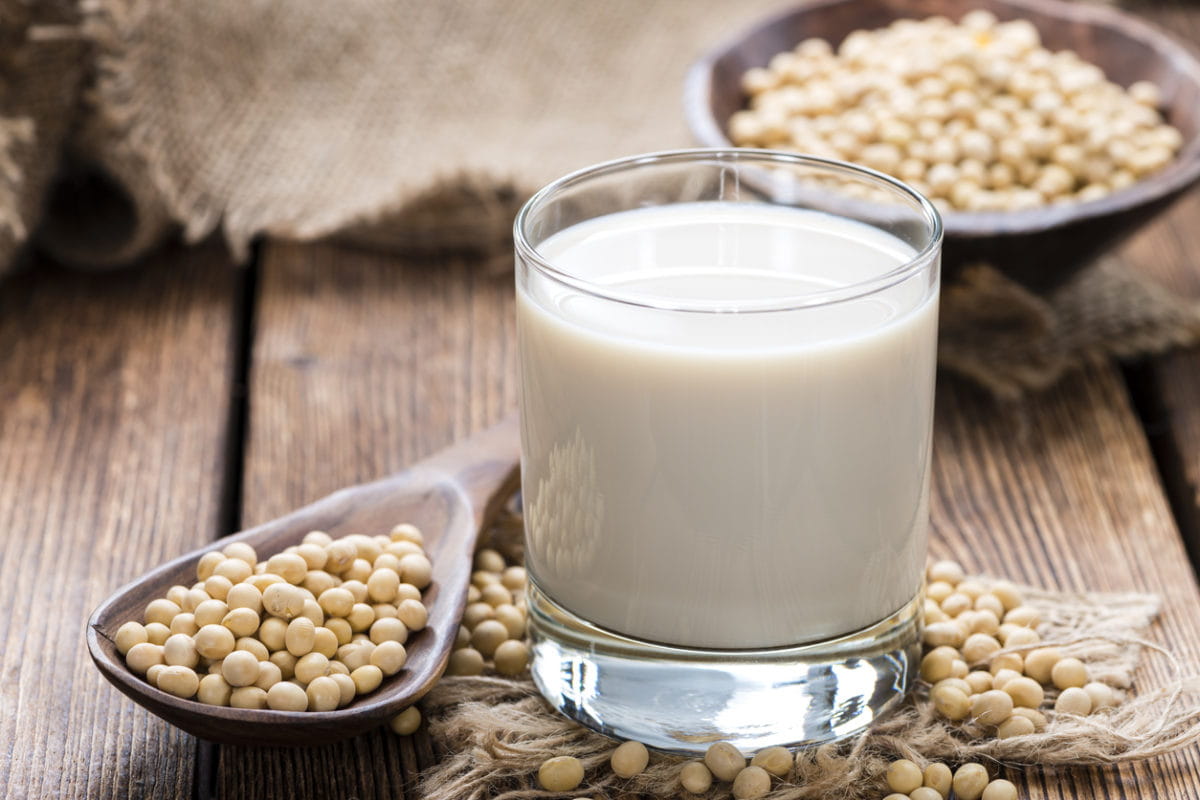
Three Trees Unsweetened Vanilla Organic Almondmilk is said to be made with real Madagascar vanilla bean. The manufacturer states that the drink contains more almonds and claims to have healthy fats and is naturally rich and nourishing with kitchen-friendly ingredients.
Mooala Brand- Organic Banana Milk is made with real bananas and cinnamon using a homemade recipe. This kosher and USDA Organic-certified product is flash-pasteurized, free from dairy, nuts, gluten, lactose, soy, carrageenan, added sugars, synthetic vitamins and major allergens. It is suitable for vegan and paleo diets.
Banana
Barley
Chia seed
Flax
Hazelnut
Macadamia
Peanut
Pecan
Pistachio
Pea
Loaded with soluble fiber, oats are moving from the bowl to the glass via oat milk. Next time you’re in your local coffee shop, ask if they have Oatly, the Swedish sensation baristas love to incorporate into lattes. Baristas believe oat milk has the perfect flavor profile and texture that brings out the best in coffee so much so that they can’t keep it in stock. In the U.S., the production of Oatly has been increased 50% to try and keep up.
Oatly! The Original Barista Edition Oat Drink is suitable for vegans and free from lactose, milk protein and soy.
Silk Prebiotics Almond & Cashew Milk with Oats is said to have a great taste and contains 50% more calcium than dairy milk. The kosher certified product features a special blend made with silky smooth almond milk, added creamy cashew milk and oats for a wholesome taste, provides 50 calories per serving as well as 5g of added prebiotic fiber that helps feed the good bacteria in gut and 2g of sugar per 8-oz. glass, and is free from dairy, lactose, gluten, soy, carrageenan, saturated fat, cholesterol, artificial colors, flavors and GMOs.
On the heels of the proposed 2017 Dairy Pride Act, the FDA is taking a hard look at the categorization of non-dairy beverages as “milks” given concerns that these beverages are profiting from the health benefits associated with milk without actually fitting the standards of identity associated with milk. Europe’s dairy farms won a sweet victory when their top court declared non-dairy milks to be beverages while the U.S. is still in discussions. Non-dairy milks can sometimes be fortified to keep up with the nutritional value of dairy milk while typically containing less sugar and being plant- based, both part of their appeal. Brands like Trader Joe’s and Whole Foods 365 have either consistently or proactively labeled their non-dairy “milks” as “beverages” signifying accepted adoption of this category re-assignment in the near future.
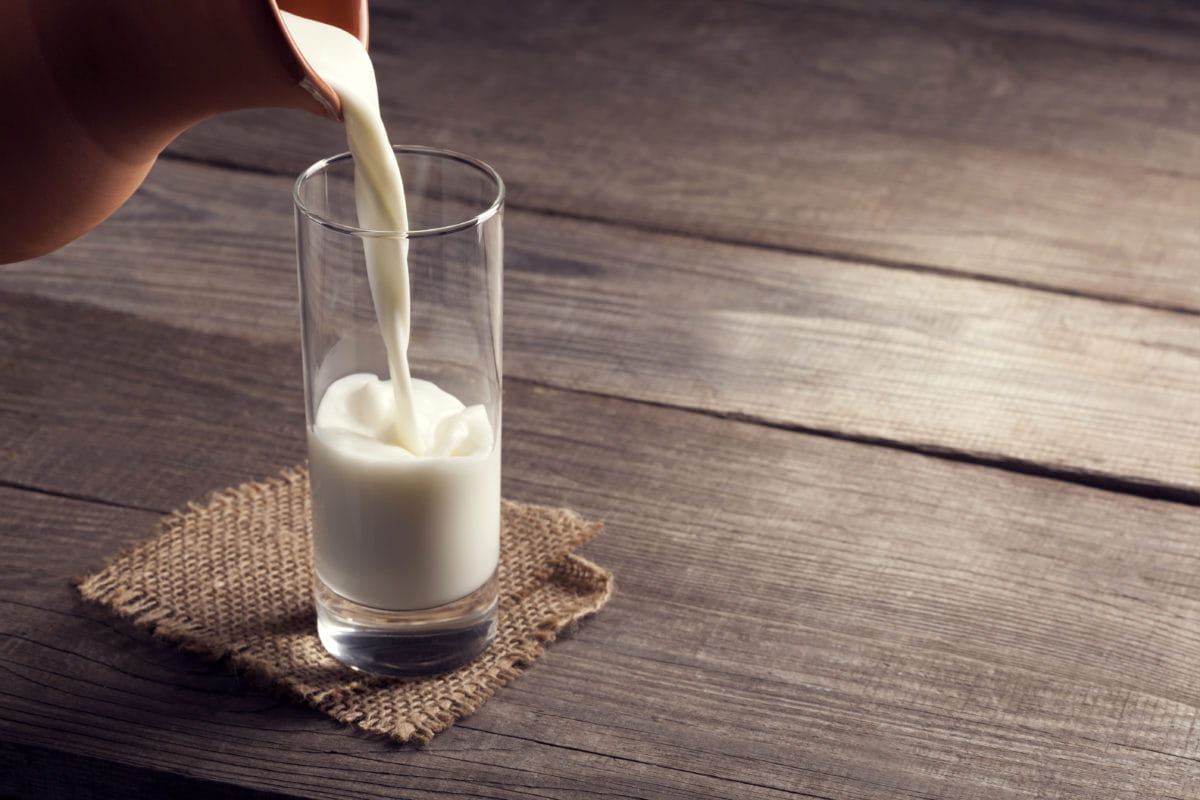
Pea protein brand Ripple created a ripple of its own when it challenged the credibility of dairy, almond, coconut and cashew milks with a game, challenging consumers to define milk. Ripple also calls out almond and cashew milks as sources of little to no protein vs. their 8g/serving.
365 Everyday Value Organic Unsweetened Original Coconut Milk Beverage is free from lactose, dairy, added sugar, GMOs and carrageenan, is low in sodium, and is said to be a good source of calcium and vitamin A and an excellent source of vitamins B12 and D.
Controversy on the actual number of nuts— many contain only a 2%— in many nut milks has inspired brands to incorporate a greater quantity of nuts into their products. The beautiful packaging design and positioning used by Califia Farms inspired the creation of New Barn’s Almondmilks which boast 3x as many almonds, giving it a higher protein content not derived from protein powder. Brands like Elmhurst Milks highlight their “31 peanuts in every glass” creating a visual for consumers worth reinforcing.
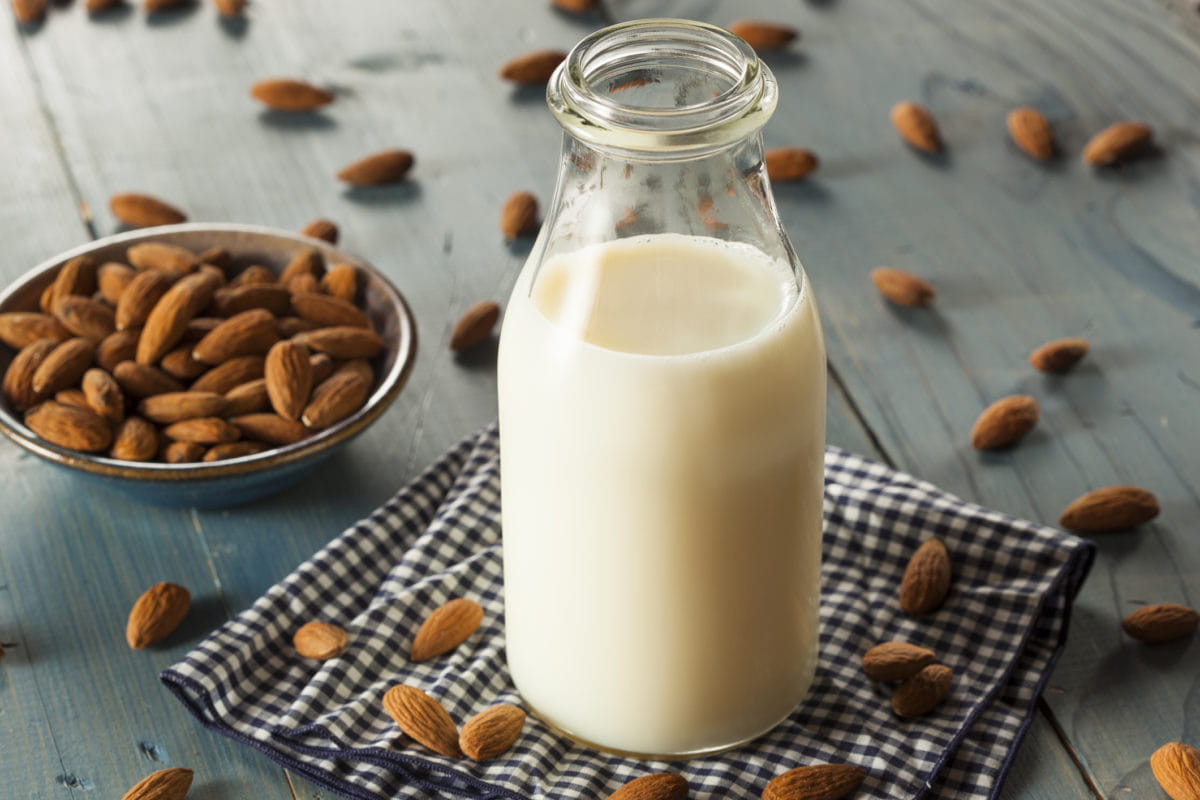
Elmhurst Peanuts Milk claims to use a unique process of using water to separate and draw out the nutrients from nuts. Once released, these valuable nutrients re-combine naturally, making a very creamy and smooth beverage. This kosher certified product is made with 31 peanuts in every glass, and contains no added GMO, high fructose corn syrup, artificial flavors, carrageen, dairy, gluten, emulsifiers, thickeners or protein.
Environmentally conscious consumers cite the amount of energy and resources used in dairy farming as motivation to explore the non-dairy route. Pea proteins produce less greenhouse gasses (Ripple reports as much as 70% less) than growing almonds or farming cows. And pea proteins require about 85% less water than almonds, which tax the water supply taking 1 gallon to grow 1 almond! Since most of the almonds are grown in California, a state with notorious water issues, all that almond milk comes at a hefty price. Consumers concerned with reducing their carbon footprint will gravitate towards brands touting highly sustainable farming practices.
While consumers perceive non-dairy milks as healthy or healthier than dairy milks, they still prioritize taste. Protein disparities aside, 63% of consumers still prefer the taste of dairy products over non-dairy ones and 60% choose them because of the Vitamin D content (especially parents concerned with offering the necessary nutrition to feed their children’s growing bodies.)
Committed non-dairy parents, who might already drink little to no milk to begin with, serve their children more unique non-dairy milks like hazelnut or cashew. Expect to see a push and pull between dairy and non-dairy milk manufacturers as each work to woo parents their way. Brands that clarify their value through positioning and education either on their packaging or through other means will make it easy for consumers to make a choice.
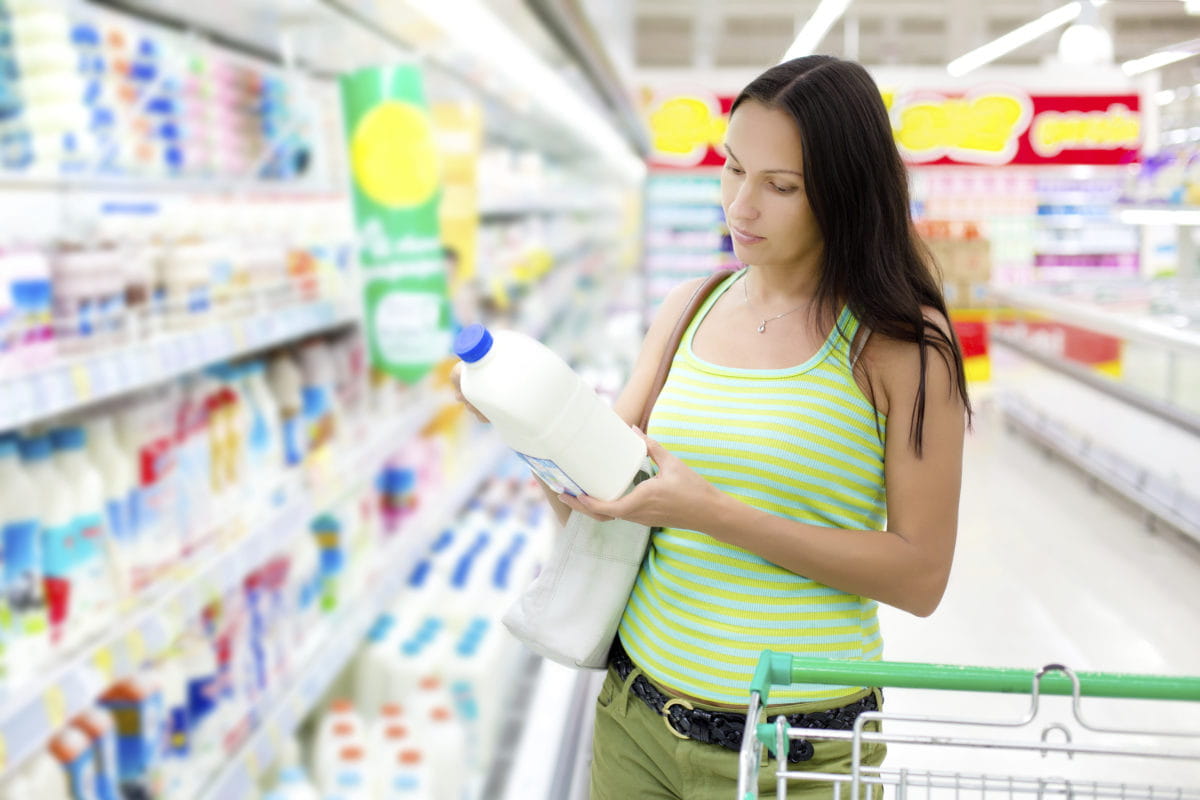
An opportunity ripe for the pouring, dairy-free RTD is a segment just waiting for some entries. Only 1% of all new product launches have been non-dairy RTD and we expect a change on the way. There is also opportunity in RTD blends of coffee or tea with non-dairy milks. Given that Starbucks announced a future launch of an RTD almond dairy-free Frappuccino, we think the tides will be turning and this is an opportunity worth milking.
Consumers are quite comfortable requesting non-dairy milks like soy, coconut or almond in their daily lattes and the incidence of their use has increased 107% since 2015. Yet the introduction of non-dairy creamers has been moderate, suggesting opportunity for manufacturers. Many consumers still rely on dairy products since they are using such a small amount and the texture and consistency of non-dairy alternatives don’t always match traditional offerings. The aforementioned Oatly is a great example of increasing consumer acceptance and other brands considering oat milk applications will benefit from its trailblazing.
Growing at an epic pace with committed consumers, plant-based milks may be the perfect place to play as a product developer. A range of bases and unique tastes are hitting the market – where can you capitalize best? From increasing the nut quantity to explaining the health benefits of your product, consider the market at hand. Meaning, clarity for consumers will win the day. Taste is crucial in this busy space, so prioritize the experience.
Click Here for the full report!
For the flavors consumers crave in their non-dairy milk products, be sure to check out the next part in our two-part series pouring into your inbox. Got a hot non-dairy concept and just can’t wait?
FONA’s technical experts are ready to take your application from good to great. Your glass will be more than half full.
From concept to manufacturing, we’re here for you — every step of the way. Contact our sales service department at 630.578.8600 to request a flavor sample or chat us up at www.mccormickfona.com/contact-mccormick-flavor-solutions/
Sources in full report

Click Here for the full report!
Introduction
Cow milk (also called dairy milk) has been on the decline since 2012. Non-dairy milks, however grew 61% in the same time period.
Consumers are seeking these plant-based alternatives that they believe help them feel and look better to fulfill health and wellness goals. Perception of the products’ health benefits is growing, as consumers seek relief from intolerance, digestive issues and added sugars. And the market reflects it. Non-dairy milks climbed 10% per year since 2012, a trend that’s expected to continue through 2022 to become a $3.3 billion-dollar market.
Soy What?
Meet the Non-Dairy Milks Consumers Crave
As the dairy milk industry has leveled out, the non-dairy milk market is growing thanks to the consumer who’s gobbling up alternatives like almond milk faster than you can say mooove. Many industry insiders consider almond milk the “gateway non-dairy milk” to lesser known options, like hazelnut, pistachio and banana. Of note, rice milk has lost favor with consumers as it doesn’t match the nutritional qualities of dairy milk and has a considerable amount of sugar.
• Almond: Steadily leading the non-dairy milk category with 63.9% of the market share, almond milk has the potential to create bottles and bottles of opportunity incorporating unique flavors for thirsty consumers.
• Soy: With a 24% market share decline since 2015, once-popular soy is losing steam as consumers, concerned about health issues related to soy, turn to tastier alternatives. Soy does remain in second place with 13% market share but has only a slight lead over coconut and other non-dairy options.
• Coconut: The third largest market leader with annual sales of $244 million, coconut milk has seen great success in RTD and refrigerated formats and is a versatile ingredient in recipes like smoothies and sauces.

Product of Notes:
Three Trees Unsweetened Vanilla Organic Almondmilk is said to be made with real Madagascar vanilla bean. The manufacturer states that the drink contains more almonds and claims to have healthy fats and is naturally rich and nourishing with kitchen-friendly ingredients.
Mooala Brand- Organic Banana Milk is made with real bananas and cinnamon using a homemade recipe. This kosher and USDA Organic-certified product is flash-pasteurized, free from dairy, nuts, gluten, lactose, soy, carrageenan, added sugars, synthetic vitamins and major allergens. It is suitable for vegan and paleo diets.
Stand-outs
Banana
Barley
Chia seed
Flax
Hazelnut
Macadamia
Peanut
Pecan
Pistachio
Pea
Oats On The Move
Loaded with soluble fiber, oats are moving from the bowl to the glass via oat milk. Next time you’re in your local coffee shop, ask if they have Oatly, the Swedish sensation baristas love to incorporate into lattes. Baristas believe oat milk has the perfect flavor profile and texture that brings out the best in coffee so much so that they can’t keep it in stock. In the U.S., the production of Oatly has been increased 50% to try and keep up.
Product of Notes:
Oatly! The Original Barista Edition Oat Drink is suitable for vegans and free from lactose, milk protein and soy.
Silk Prebiotics Almond & Cashew Milk with Oats is said to have a great taste and contains 50% more calcium than dairy milk. The kosher certified product features a special blend made with silky smooth almond milk, added creamy cashew milk and oats for a wholesome taste, provides 50 calories per serving as well as 5g of added prebiotic fiber that helps feed the good bacteria in gut and 2g of sugar per 8-oz. glass, and is free from dairy, lactose, gluten, soy, carrageenan, saturated fat, cholesterol, artificial colors, flavors and GMOs.
More than a Word:
Legal Action on “Milk”
On the heels of the proposed 2017 Dairy Pride Act, the FDA is taking a hard look at the categorization of non-dairy beverages as “milks” given concerns that these beverages are profiting from the health benefits associated with milk without actually fitting the standards of identity associated with milk. Europe’s dairy farms won a sweet victory when their top court declared non-dairy milks to be beverages while the U.S. is still in discussions. Non-dairy milks can sometimes be fortified to keep up with the nutritional value of dairy milk while typically containing less sugar and being plant- based, both part of their appeal. Brands like Trader Joe’s and Whole Foods 365 have either consistently or proactively labeled their non-dairy “milks” as “beverages” signifying accepted adoption of this category re-assignment in the near future.

The FDA describes and defines milk as "the lacteal secretion, practically free from colostrum, obtained by the complete milking of one or more healthy cows."
Pea protein brand Ripple created a ripple of its own when it challenged the credibility of dairy, almond, coconut and cashew milks with a game, challenging consumers to define milk. Ripple also calls out almond and cashew milks as sources of little to no protein vs. their 8g/serving.
Product of Note:
365 Everyday Value Organic Unsweetened Original Coconut Milk Beverage is free from lactose, dairy, added sugar, GMOs and carrageenan, is low in sodium, and is said to be a good source of calcium and vitamin A and an excellent source of vitamins B12 and D.
Opportunities
More Nuts the Better
Controversy on the actual number of nuts— many contain only a 2%— in many nut milks has inspired brands to incorporate a greater quantity of nuts into their products. The beautiful packaging design and positioning used by Califia Farms inspired the creation of New Barn’s Almondmilks which boast 3x as many almonds, giving it a higher protein content not derived from protein powder. Brands like Elmhurst Milks highlight their “31 peanuts in every glass” creating a visual for consumers worth reinforcing.

Elmhurst Peanuts Milk claims to use a unique process of using water to separate and draw out the nutrients from nuts. Once released, these valuable nutrients re-combine naturally, making a very creamy and smooth beverage. This kosher certified product is made with 31 peanuts in every glass, and contains no added GMO, high fructose corn syrup, artificial flavors, carrageen, dairy, gluten, emulsifiers, thickeners or protein.
Sustainability
Environmentally conscious consumers cite the amount of energy and resources used in dairy farming as motivation to explore the non-dairy route. Pea proteins produce less greenhouse gasses (Ripple reports as much as 70% less) than growing almonds or farming cows. And pea proteins require about 85% less water than almonds, which tax the water supply taking 1 gallon to grow 1 almond! Since most of the almonds are grown in California, a state with notorious water issues, all that almond milk comes at a hefty price. Consumers concerned with reducing their carbon footprint will gravitate towards brands touting highly sustainable farming practices.
Taste
While consumers perceive non-dairy milks as healthy or healthier than dairy milks, they still prioritize taste. Protein disparities aside, 63% of consumers still prefer the taste of dairy products over non-dairy ones and 60% choose them because of the Vitamin D content (especially parents concerned with offering the necessary nutrition to feed their children’s growing bodies.)
Speaking of Parents
Committed non-dairy parents, who might already drink little to no milk to begin with, serve their children more unique non-dairy milks like hazelnut or cashew. Expect to see a push and pull between dairy and non-dairy milk manufacturers as each work to woo parents their way. Brands that clarify their value through positioning and education either on their packaging or through other means will make it easy for consumers to make a choice.

Dairy -free RTD
An opportunity ripe for the pouring, dairy-free RTD is a segment just waiting for some entries. Only 1% of all new product launches have been non-dairy RTD and we expect a change on the way. There is also opportunity in RTD blends of coffee or tea with non-dairy milks. Given that Starbucks announced a future launch of an RTD almond dairy-free Frappuccino, we think the tides will be turning and this is an opportunity worth milking.
Coffee Catching On
Consumers are quite comfortable requesting non-dairy milks like soy, coconut or almond in their daily lattes and the incidence of their use has increased 107% since 2015. Yet the introduction of non-dairy creamers has been moderate, suggesting opportunity for manufacturers. Many consumers still rely on dairy products since they are using such a small amount and the texture and consistency of non-dairy alternatives don’t always match traditional offerings. The aforementioned Oatly is a great example of increasing consumer acceptance and other brands considering oat milk applications will benefit from its trailblazing.
Takeaways
Growing at an epic pace with committed consumers, plant-based milks may be the perfect place to play as a product developer. A range of bases and unique tastes are hitting the market – where can you capitalize best? From increasing the nut quantity to explaining the health benefits of your product, consider the market at hand. Meaning, clarity for consumers will win the day. Taste is crucial in this busy space, so prioritize the experience.
Click Here for the full report!
Want More Milk?
For the flavors consumers crave in their non-dairy milk products, be sure to check out the next part in our two-part series pouring into your inbox. Got a hot non-dairy concept and just can’t wait?
FONA’s technical experts are ready to take your application from good to great. Your glass will be more than half full.
From concept to manufacturing, we’re here for you — every step of the way. Contact our sales service department at 630.578.8600 to request a flavor sample or chat us up at www.mccormickfona.com/contact-mccormick-flavor-solutions/
Sources in full report



